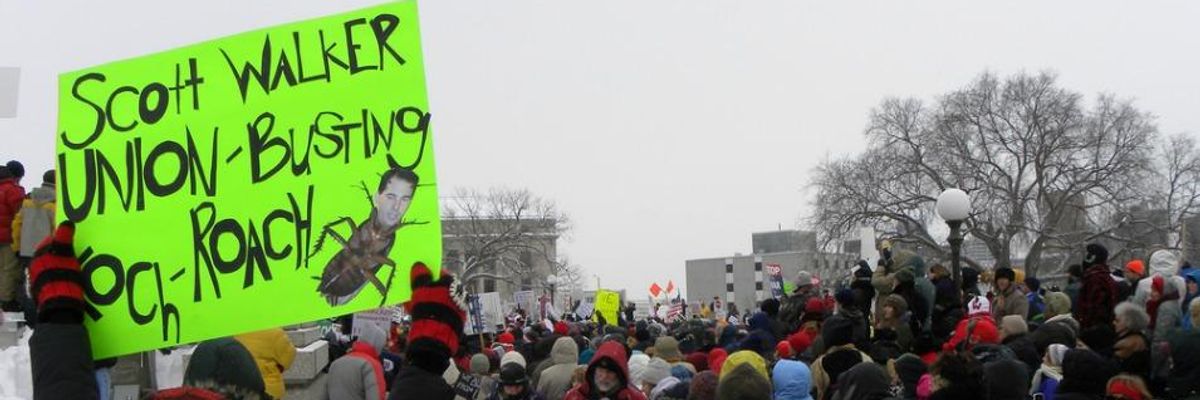Wisconsin Governor Scott Walker on Friday said he's ready to sign so-called right-to-work legislation that Republican lawmakers aim to fast-track next week.
Walker's announcement marks a shift from previous statements on such legislation; the Associated Press says that it's a move "the likely 2016 presidential candidate initially said should be delayed to avoid re-igniting massive pro-union protests."
The Milwaukee Journal Sentinel reports: "Lawmakers are calling themselves into extraordinary session for the bill because Democrats would have fewer chances to use the delaying tactics available to them in regular session, [Senate Majority Leader Scott] Fitzgerald said."
Explaining the governor's change in stance, The Nation's John Nichols writes: "Walker's in a new race now--a race to win the support of Republican caucus-goers and primary voters who like their candidates to take a hard line on social and economic issues."
"And so his line just got a whole lot harder," Nichols wrote.
As the Center for Media and Democracy's Mary Bottari previously explained,
Right to Work laws weaken unions by allowing members to opt out of paying dues. Workers get the benefit of working in a union shop (higher wages, better benefits), but are not required to pay their fair share for union representation. Right to Work laws have been used effectively in the South to bust unions and keep wages low, which is why they are dubbed "Right to Work for Less" laws by opponents.
"Right-to-work rings a false promise for Wisconsin," said Phil Neuenfeldt, President of the Wisconsin AFL-CIO, local news CBS 58 reports. "Every worker suffers when states enact anti-worker Right to Work laws. Rushing this legislation through in an extraordinary session is a slap in the face to our democracy."
Twenty-four states already have right-to-work laws in place.

